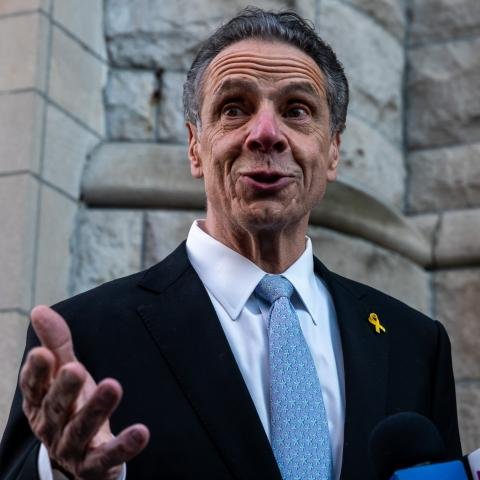
The House Oversight Committee on Tuesday published its final report on its investigation into the Biden’s administration’s use of an autopen, concluding that at least some of the president’s orders were invalid and calling on the Justice Department to investigate.
Earlier this year, the House Oversight Committee launched a probe into President Joe Biden’s alleged use of an autopen to sign pardons and other presidential orders during his waning days in office.
After three months of investigation that included interviews with President Biden’s senior aides, the panel’s chairman, GOP Rep. James Comer from Kentucky, came to suspect that what he and his colleagues had uncovered could be used as evidence to overturn some of those executive actions because those senior staff failed to prove the president knew what he was signing.
Comer: Many of Biden’s autopen orders were “invalid”
Now, Comer says his committee’s final report proves that many of President Biden’s autopen orders were, in fact, invalid.
“The Biden Autopen Presidency will go down as one of the biggest political scandals in U.S. history. As Americans saw President Biden’s decline with their own eyes, Biden’s inner circle sought to deceive the public, cover-up his decline, and took unauthorized executive actions with the autopen that are now invalid,” House Oversight Chairman James Comer said in a statement.
“Executive actions performed by Biden White House staff and signed by autopen are null and void,” he added. “We are calling on the U.S. Department of Justice to conduct a thorough review of these executive actions and scrutinize key Biden aides who took the Fifth to hide their participation in the cover-up. We have provided Americans with transparency about the Biden Autopen Presidency, and now there must be accountability.”
Comer and his Oversight Committee conducted 14 depositions and transcribed interviews with senior Biden White House staff—including two chiefs of staff, his personal physician, and senior advisors. The former president’s personal physician and first lady Jill Biden’s chief of staff each invoked their Fifth Amendment right against self-incrimination under questioning by the GOP-led House Oversight Committee.
The Oversight Committee concluded that senior Biden White House staff illegally exercised the president’s authority on his behalf by directing the use of the autopen and failed to document the office’s decision-making processes.
The committee’s investigation turned up “alarming deficiencies” in documentation and chain of custody for key presidential decisions. In some cases, President Biden was only said to have approved certain actions verbally or without a clear record of the decision memorialized by his staff, according to the report.
You can read the final report below:
Recordkeeper did not know who actually approved orders
For example, Neera Tanden, who served as a senior advisor and staff secretary during Biden’s term, testified before the committee that she had remarkably little interaction with the president, despite her responsibility to record presidential decisions and actions. As staff secretary, Tanden was responsible for managing the decision materials and sending them to Oval Office Operations. However, Tanden said that she only saw the president once every six to eight weeks, according to the report.
Tanden also admitted to the committee, despite being in charge of directing the use of the autopen, she was given little insight into how those acts were being approved and said she did not know who in Biden’s inner circle was ultimately approving the actions.
The committee also argues that the lack of a uniform procedure for presidential approval and autopen use made the system ripe for exploitation. For example, Biden’s final chief of staff, Jeff Zients, told the Oversight Committee that he had never seen any kind of “decision memo” outlining the use of the autopen.
Another Biden chief of staff, Ron Klain, told the committee that it was an established process for the president to sign decision materials, but that the process was not always followed. Sometimes a verbal approval with no attendant record was sufficient, the report shows.
Zients told the committee that the procedure was “not a precise system,” and that “there were verbal authorizations of the president’s decision that would occur on occasion.”
No evidence Biden attended some clemency approvals
The congressional probe’s findings match closely with a review from the Trump White House of its predecessor’s autopen use. That review found scant contemporaneous evidence that Biden had actually attended four key clemency meetings in the waning months of his term and turned up no record of the president’s briefing books addressing pardons, commutations, or clemency at that time, Just the News previously reported.
There were four meetings between December 2024 and January 2025 during which President Biden was said to have given “verbal approval” for his wide-ranging clemency actions, including commutations for CARES Act home confinement recipients, federal death row inmates, and crack-powder sentencing disparities, as well as Biden family pardons.
But, despite retroactive emails detailing Biden’s presence at the four meetings—which allegedly took place on December 5, December 11, January 11, and January 19—the National Archives said it possessed no contemporaneous staff notes from any meeting attendees that could confirm that the former president was present at those meetings or gave verbal approval to those clemency acts.
Biden has defended the use of the autopen since leaving office and insisted that he made all the decisions during his term. He told The New York Times in an extensive interview in July that he “made every decision.”
He also shed light on how he and his aides decided on pardons at the close of his administration and on how he approved them. The former president insisted that he made every decision when it came to the pardons. However, he noted that in some cases, like Biden’s categorical pardons, his aides did not read off individual names.
The paper also reported that Biden “did not individually approve each name for the categorical pardons that applied to large numbers of people, he and aides confirmed,” citing administration sources.
Oversight Committee says not good enough
However, the Oversight Committee believes that, in the absence of evidence “showing that President Biden indeed took a particular executive action, the Committee deems those actions taken through use of the autopen as void.”
The final report calls on the Trump Justice Department to review the former president’s pardons and executive actions.
“The validity of the executive actions allegedly approved and signed (largely by autopen) by President Biden must be reviewed to determine whether legal action is necessary to ameliorate consequences of any illegitimate pardons granted, or executive actions implemented, throughout the Biden Autopen Presidency,” the Oversight Committee wrote.




